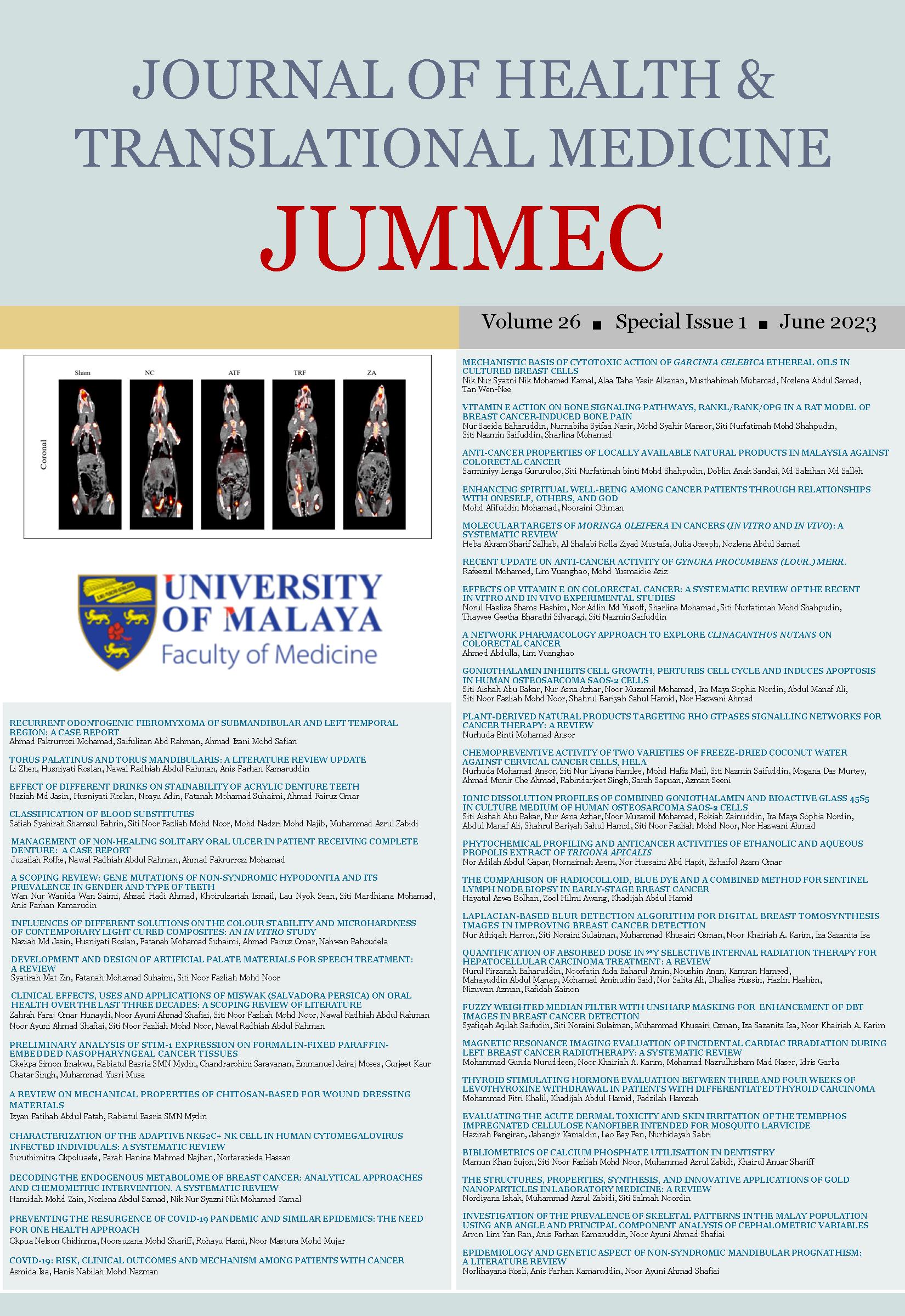MOLECULAR TARGETS OF MORINGA OLEIFERA IN CANCERS (IN VITRO AND IN VIVO): A SYSTEMATIC REVIEW
Received 2023-01-08; Accepted 2023-03-17; Published 2023-06-06
DOI:
https://doi.org/10.22452/jummec.sp2023no1.5Abstract
Cancer is unquestionably the greatest worldwide threat to humanity. With fewer side effects, natural
anticancer medicines are the most prevalent. Anticancer benefits of dietary polyphenols could be achieved
through carcinogen elimination, cancer cell signalling alteration, antioxidant enzymatic activities, and
apoptosis-inducing substances, according to the likely approach to anticancer effects of dietary polyphenols
research. This study aims to investigate the apoptosis induction mediated by Moringa oleifera in in vitro and
other molecular targets in vivo in all types of cancer studies, as well as to describe the most recent and
comprehensive research on antioxidant and anticancer characteristics. The terms "molecular target", "signalling
pathway", "apoptosis", "Moringa oleifera extract", "mechanism of action", "cancer", "tumour", "carcinoma",
and "melanoma" were used to search four online databases, PubMed, Scopus, ScienceDirect, and Google
Scholar, for relevant articles published between 2009 and 2019.
Downloads
Downloads
Published
Issue
Section
License
All authors agree that the article, if editorially accepted for publication, shall be licensed under the Creative Commons Attribution License 4.0 to allow others to freely access, copy and use research provided the author is correctly attributed, unless otherwise stated. All articles are available online without charge or other barriers to access. However, anyone wishing to reproduce large quantities of an article (250+) should inform the publisher. Any opinion expressed in the articles are those of the authors and do not reflect that of the University of Malaya, 50603 Kuala Lumpur, Malaysia.


